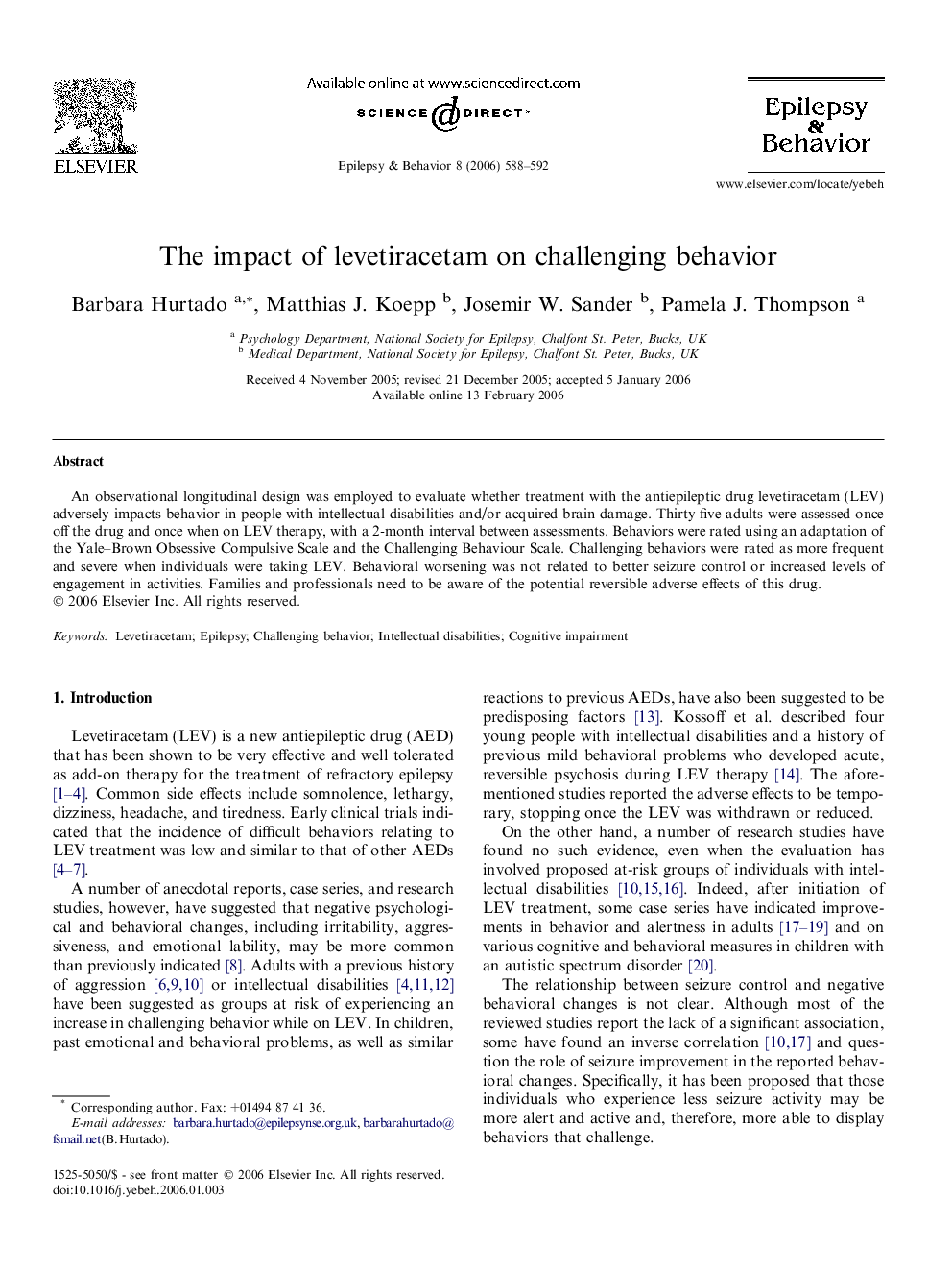| Article ID | Journal | Published Year | Pages | File Type |
|---|---|---|---|---|
| 3051521 | Epilepsy & Behavior | 2006 | 5 Pages |
An observational longitudinal design was employed to evaluate whether treatment with the antiepileptic drug levetiracetam (LEV) adversely impacts behavior in people with intellectual disabilities and/or acquired brain damage. Thirty-five adults were assessed once off the drug and once when on LEV therapy, with a 2-month interval between assessments. Behaviors were rated using an adaptation of the Yale–Brown Obsessive Compulsive Scale and the Challenging Behaviour Scale. Challenging behaviors were rated as more frequent and severe when individuals were taking LEV. Behavioral worsening was not related to better seizure control or increased levels of engagement in activities. Families and professionals need to be aware of the potential reversible adverse effects of this drug.
